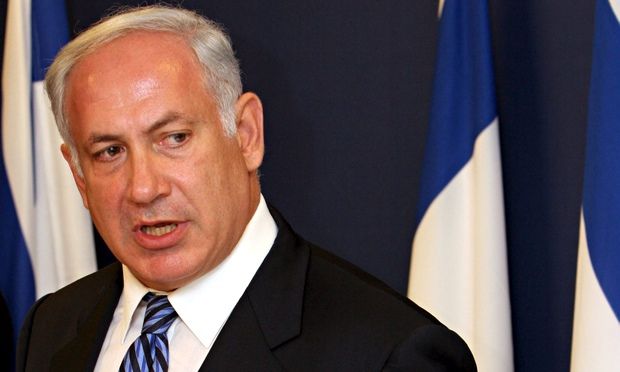
Benjamin Netanyahu said that a nuclear deal with Iran based on current framework will “threaten the survival of Israel”, also warning it would increase the risk of a “horrific war.”
In a telephone phone conversation with the US President, the Israeli Prime Minister expressed his opposition to the framework agreement reached with Iran on Thursday.
RT reports: Netanyahu has once again called for a “better deal” insisting that the only way to reach it would be “standing firm and increasing the pressure on Iran.”

BYPASS THE CENSORS
Sign up to get unfiltered news delivered straight to your inbox.
You can unsubscribe any time. By subscribing you agree to our Terms of Use
Netanyahu warned that if the final deal due to be signed in June, fell in line with the current framework, it would “increase the risks of nuclear proliferation in the region and the risks of a horrific war.”
Successful negotiations and a sealed deal would “legitimize” Iran’s nuclear program, which Netanyahu insists is militarized and designed to increase aggression and bring more terror throughout the Middle East.
Barack Obama called Netanyahu on Thursday evening to discuss the agreement reached with Iran following eight-day talks in Switzerland and convince him that the deal represents significant progress toward cutting off “all of Iran’s pathways to a nuclear weapon.”
“It is a good deal. A deal that meets our core objectives,” the US President said earlier in his public address from the White House. “If this framework leads to the final deal, it would make our country, allies and the world safer.”
However, Obama reassured Netanyahu that the progress does not diminish concerns about “Iran’s sponsorship of terrorism and threats towards Israel,” the White House said in a statement.
Iran’s foreign minister Mohammad Javad Zarif said that despite the agreement reached, normalizing relations with Washington is far from over for Tehran.
“Iran and US relations have nothing to do with this, which was an attempt to resolve the nuclear issue … We have serious differences with the United States,” Zarif said. “We have built mutual distrust in the past…So what I hope is that through courageous implementation of this, some of that trust could be remedied. But that is for us all to wait and see.”
The Israeli Prime Minister who is in the process of forming what is likely to be an even more hardline anti-Iran government is poised to oppose and will try to undermine any deal, Rosemary Hollis, a Middle East policy professor from City University in London, told RT.
“His demand is that Iran completely dismantle its nuclear program, which is a demand that cannot be met,” she explained. “Over the years the Israeli tactic has been to threaten to strike Iranian nuclear installations, if necessary, on the assumption that that would actually lead to retaliation not just against Arabs but also to American installations in the Persian Gulf. So it would drag the US into a war with Iran.”
But in the face of such an internationally-backed deal, Netanyahu is unlikely to act recklessly, Hollis believes.
“I think, judging by past experience, what Netanyahu might try to do is undermine the credibility of the deal, not suddenly launch a strike,” she said. “And we know that Israeli military chiefs and security chiefs are not at one with the Israeli Prime Minister on the imminence of the danger of Iran getting a bomb.”
Under the terms of the preliminary deal Iran reached in Switzerland on Thursday, Iran agreed to reduce its uranium enrichment capabilities by two-thirds and keep only 6,104 of its first-generation centrifuges.
Tehran agreed not to enrich uranium over the 3.67 percent mark for at least 15 years. It also made concessions to reduce its current stockpile of low-enriched uranium and not build any new facilities for 15 years.
The country also agreed to convert its highly secured facility at Fordow so that it would no longer enrich uranium. Limits on enrichment have also been placed at Natanz facility. The deal also paves the way for inspections and transparency mechanisms where the IAEA will have regular access to all of Iran’s nuclear facilities.


Be the first to comment